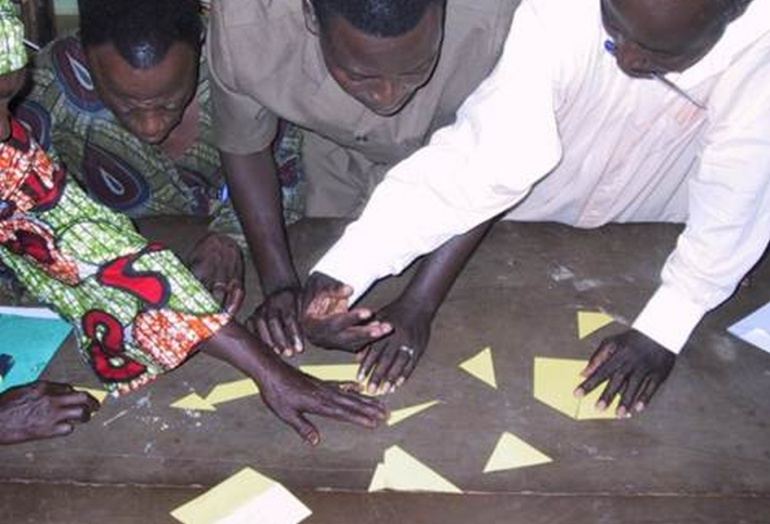The water supply coverage in Benin has improved over the previous years.However, over 30% of the population does not have access to safe drinking water and over 50% of the population does not have access to adequate sanitation.
As part of the devolution and decentralisation policy, the management responsibility for water supply, hygiene and sanitation was transferred to municipalities without providing the necessary organisational, technical and financial pre-conditions. The responsible sector decision makers have not yet established appropriate framework conditions - which is the core problem.
The objective of the project is to assist sector decision makers to create framework conditions for the equitable access of the population to safe water, hygiene and sanitation services. This will be achieved through four areas of intervention:
- Support to the formulation of water, hygiene and sanitation policies and strategies within the context of decentralisation
- Assistance to the implementation of the National Health and (Basic) Sanitation Strategy
- Improvement of water supply in rural and peri-urban areas
- Capacity development at national and local level in the water supply, sanitation and hygiene.
The political conditions at national level as well as the necessary support to sector specific departments of line ministries are also promoted. At the regional level, new and needs based service provision will be established. At local level, eight selected municipalities will be fully supported in implementation of construction and accompanying measures. 30 other municipalities will benefit from the targetedsupport in the water, sanitation and hygiene sector (WASH).
Services Provided
Strengthening of decentralised service provision in the Water, Sanitation and Hygiene (WASH):
- Strengthening of capacity of decentralised government service (DS) in utilisation of various means of support to municipalities
- Enable the decentralised government services to better respond to requests for assistance from the local councils
- Support the decentralised government services to enforce regulation, monitor public water supply services and drinking water quality
- Strengthening the project management in water, hygiene and sanitation (WHS)
- Capacity building of municipal stakeholders
- Capacity development of municipal organisations/departments in charge of WHS
- Municipal WHS planning
- Updating of WHS sector plans and objective-based budgets
- Assistance to the municipalities in developing action plans for behavioural change
- Capacity strengthening and training of the private sector
- Training of water providers in managing safe water Implementation of joint partnership agreements – SONEB
- Support the municipalities in the professional management of village water supply and small scale construction
- Assist the municipalities in management of public and institutional latrines
- Support the municipalities in organising public hearings regarding accountability
- Support the civil society in its “watch dog” responsibility:
- Establish Water User Associations (ACEP) and extend their responsibilities to hygiene and sanitation
- Training of members of Water Users Associations
- Assist Water Users Associations in ensuring accountability of WHA activities.




